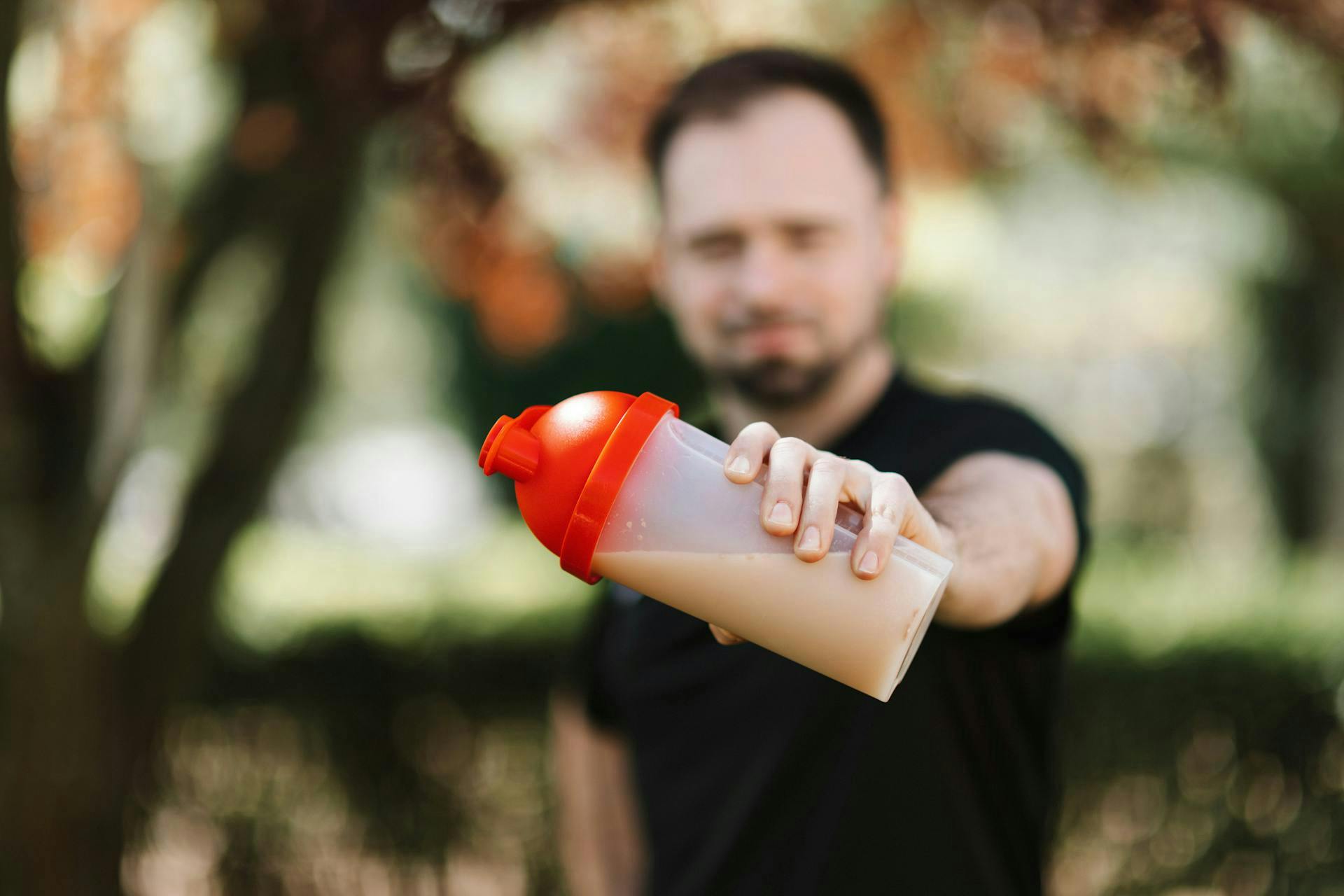Is Creatine Good for Weight Loss? What Science Says
By Editorial Team
Reviewed by Kenya Bass, PA-C
Published May 15, 2025
8 min read

Creatine is one of the most popular supplements in the fitness world. It’s known for helping people build muscle, boost strength, and improve performance during high-intensity workouts. But a question that’s been coming up more and more lately is: Is creatine good for weight loss?
If you’re trying to lose weight, you might wonder if creatine is helpful or harmful. You might have heard that it causes weight gain, or maybe you’re curious whether it can actually help you burn fat and lose weight more effectively. The truth is a bit more nuanced—and surprisingly encouraging.
In this article, we’ll break it all down in plain language: how creatine works, what the science says about creatine for weight loss, who should consider using it, and how to take it if your goal is to lose fat and keep muscle.
What Is Creatine and How Does It Work?
Creatine is a natural substance found in your muscles and brain. Your body makes some of it on its own, and you also get a bit from foods like red meat and fish. But many people choose to take creatine as a supplement, especially if they work out regularly.
When you take creatine, it helps your muscles produce more energy during short bursts of intense activity, like lifting weights or sprinting. Think of it like a battery boost for your muscles. More energy means better performance, which can lead to faster strength gains, more muscle, and improved endurance.
Most people use a type called creatine monohydrate, which is the most studied and widely used form. It’s affordable, safe, and effective.
Why People Think Creatine Causes Weight Gain
Before we dive into how creatine may help with fat loss, let’s clear up a common misconception: creatine often leads to water weight gain when you first start taking it. This happens because creatine pulls water into your muscle cells to help them function better. It’s not fat gain—it’s just your body holding onto more water inside your muscles.
This temporary water retention can make the number on the scale go up, which might seem discouraging if you’re trying to slim down. But remember, gaining water inside your muscles is not the same as gaining fat. In fact, it’s a sign that the creatine is doing its job.
So, Is Creatine Good for Weight Loss?
Here’s the big question: Is creatine good for losing weight? Or even more directly, does creatine help with weight loss?
The answer is: creatine may not directly burn fat, but it can absolutely support your weight loss efforts, especially if you combine it with a smart workout routine.
Let’s break that down.
Creatine improves your ability to perform better in workouts. You might be able to lift heavier weights, do more reps, or run faster. Over time, this leads to building more muscle.
Why does that matter for weight loss?
Because muscle burns more calories than fat, even when you’re not working out. So, the more muscle you build, the more calories your body uses every day. This can help create a calorie deficit, which is essential for fat loss.
So, while creatine doesn’t directly melt fat away, it supports the process by helping you build muscle and increase your overall calorie burn. That makes it a helpful supplement for people who are trying to lose fat, stay strong, and look more toned.
In other words: can creatine help weight loss? Yes—when paired with exercise, especially strength training.
Can Creatine Help Burn Fat?

You might be wondering, can creatine help burn fat directly? That’s a fair question, but the answer is a bit complex.
Creatine itself doesn’t have fat-burning properties like caffeine or green tea extract. It’s not a thermogenic or a stimulant. Instead, it helps improve your workout performance, which leads to building muscle and burning more calories over time.
Some research has shown that people who take creatine and exercise regularly experience better improvements in body composition than those who don’t. That means they lose more fat and gain more lean muscle.
So no, creatine doesn’t directly torch fat, but it can definitely help you lose fat as part of a bigger plan.
Does Creatine Increase Metabolism?
Here’s another common question: Does creatine increase metabolism?
Technically, creatine doesn’t speed up your metabolism in the way that caffeine does. However, by helping you build more muscle, creatine indirectly supports a higher metabolism.
Muscle is more metabolically active than fat. That means it takes more energy (calories) to maintain muscle tissue than fat tissue. So, the more muscle you have, the more calories you burn at rest. Even just sitting on the couch, your body is working harder to keep that muscle alive.
By supporting muscle growth, creatine helps raise your resting metabolic rate over time. It’s a long-term effect, but it’s meaningful.
So while creatine doesn’t directly stimulate your metabolism, it supports the muscle-building process that leads to a faster metabolism.
Creatine for Losing Weight: Who Should Use It?
Creatine for losing weight can be a smart choice, but it’s not for everyone.
It’s best for people who:
- Work out regularly, especially with weights or high-intensity cardio
- Want to maintain muscle while losing fat
- Are okay with temporary water weight gain
It may not be the best option if:
- You don’t exercise or do strength training
- You have a medical condition that affects your kidneys (always check with your doctor)
- You expect rapid fat loss from supplements alone
Creatine for Women: Is It Safe and Effective?
Many women worry that creatine will make them bulky or cause unwanted weight gain. But that’s not the case.
Creatine is safe for women, and it can be especially helpful during a fat loss phase. It helps protect muscle, which is important for maintaining a toned, lean appearance. In fact, some studies show that women who take creatine while doing resistance training improve strength and body composition more than those who don’t.
Creatine doesn’t mess with hormones, doesn’t cause masculinizing effects, and doesn’t make you gain fat. It simply gives your muscles more energy so you can work out harder and recover better.
How to Take Creatine If You Want to Lose Weight

If you’re convinced that creatine might help support your fat loss goals, here’s how to take it effectively:
- Dosage: Most people take 3 to 5 grams of creatine monohydrate per day.
- Loading phase (optional): You can start with 20 grams per day (split into 4 doses) for 5–7 days to saturate your muscles faster. But it’s not required.
- Timing: You can take it anytime, but some research suggests it may be slightly more effective after your workout.
- Hydration: Because creatine pulls water into your muscles, make sure to drink plenty of water.
- Consistency: Take it every day—even on rest days—to keep your levels up.
Are There Any Side Effects?
Creatine is one of the most researched supplements out there, and it’s considered very safe for healthy people.
Some people experience minor bloating or stomach discomfort when they first start taking it. This usually goes away as your body adjusts.
One common concern is kidney damage, but studies have shown that creatine doesn’t harm your kidneys if you’re healthy and take it as recommended. Still, if you have a kidney condition, talk to your doctor before using it.
Creatine vs. Other Weight Loss Supplements
Compared to other weight loss supplements, creatine is unique.
It doesn’t raise your heart rate or curb your appetite. Instead, it supports your workouts by giving your muscles more energy. Over time, that leads to more muscle, better performance, and ultimately, more fat loss when combined with a good diet.
If your goal is long-term fat loss while maintaining strength and muscle, creatine is a great tool. It’s not a magic pill, but it works well as part of a bigger plan.
Final Thoughts: Is Creatine Good for Weight Loss?
So, let’s circle back to the original question: Is creatine good for weight loss?
The answer is yes—but with a few important caveats. Creatine won’t directly burn fat, and it may cause some short-term water weight gain. But it can help you:
- Train harder and more effectively
- Build and protect lean muscle
- Boost your overall calorie burn
- Improve your body composition
If you’re looking to get leaner, stronger, and healthier, creatine can absolutely be part of your plan. Just remember: it works best when combined with exercise, especially strength training.
FAQs
1. Does creatine help with weight loss?
Yes, by helping you build muscle and perform better in workouts, which increases calorie burn.
2. Can creatine help with weight loss directly?
Not directly. It doesn’t burn fat on its own, but it supports fat loss through better workouts and muscle gain.
3. Does creatine increase metabolism?
Not directly, but more muscle = higher resting metabolism.
4. Is creatine good to lose weight for women?
Yes. It helps maintain lean muscle and improve performance without causing fat gain or hormonal issues.
5. Can creatine help burn fat?
Indirectly, yes. It helps you build muscle and work out harder, which supports fat loss over time.
6. Is creatine for weight loss safe?
Yes, for healthy individuals. Just stay hydrated and follow the dosage guidelines.
Bottom line: Creatine is a well-researched, safe, and effective supplement. While it may not burn fat directly, it can play a powerful role in helping you lose fat, build muscle, and feel stronger. If you’re trying to get fit and lean, creatine is worth considering.
Share this article

Magnesium for Weight Loss: Benefits, Risks, and What Science Really Says
Dr. Jossy Onwude, MD
Sep 29, 20259 min read

Mounjaro® Sulfur Burps Explained: Causes, Symptoms, and Science-Backed Remedies
Dr. Priyali Singh, MD
Sep 25, 202511 min read

Low Sodium Diet: Simple Guidelines, Food Lists, and Tips for Better Health
Lilian E.
Sep 30, 202512 min read